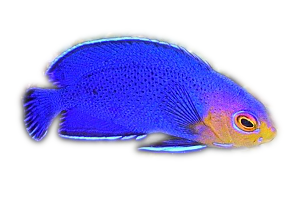
By Bob Goemans

Likely Reef Tank Suitable
Likely Fish-Only Tank Suitable
Range: Indo-West Pacific Ocean: Widespread.
Natural Environment: This photosynthetic soft coral is found in a variety of different environmental areas, however, usually inhabits fairly shallow areas where strong currents exist. Because of its supportive sclerites (small calcium spines/plates embedded in its tissue) they are able to withstand strong water movement or wave action. They are also found in large overlapping colonies in shallow turbid waters, where this species often dominates the area. Its polyps are short and do not extend much above the level of the coenenchyme, i.e., its stiff tissue base. Reproduction is usually by asexual means, with the most common form, fission. Its broad, flat-like, blunt branches on a well-developed stalk can reach several inches or more in length and/or width, and are quite tough and sturdy. The most common colors are various shades of cream to dull tan, often having a blotchy appearance with its sclerites quite visible.
General Husbandry: Even though they can tolerate a wide spectrum of environmental conditions, they tend to do better in areas lit with bright light, and where moderate to strong water movement exists. Since they are photosynthetic, no direct feeding or special care is required; yet, they seem to do better in environments that are somewhat nutrient rich.
Placement in the aquarium can be wherever conditions favor it, but keep in mind it can grow quite large and quickly, therefore may shade-out nearby specimens sooner than anticipated. Provide enough space between them and their neighbors! These are especially good corals for those new to the hobby, as they are as hardy as mushroom corals!
Taxonomy:
Kingdom: Animalia
Phylum: Cnidaria
Class: Anthozoa
Subclass: Octocorallia
Order: Anlcyonacea
Suborder: Alcyoniina
Family: Alcyoniidae
Genus: Sinularia
FYI: It's known that some Sinularia species are quite toxic to other genera corals, i.e., can at a minimum inhibit or stunt their growth, especially where some Acropora, Catalaphyllia, Euphyllia, Plerogra and Porites species are concerned. Nevertheless, I've maintained S. dura in many aquariums containing various species in these genera without ever seeing any harm to them. But I do, however, recommend activated carbon be utilized at all times and properly maintained, as any terpenes 'possibly' produced by this species or other Sinularia species, can easily and safely be removed.
As for those wanting to propagate this species by fragmentation, I recommend doing it outside the confines of the aquarium, and allowing the 'frags' and mother colony to heal in a quarantine tank before any portions are returned to the show aquarium.
Mariculture specimens available in the trade.
Can attain a height of about 24 inches (60 cm) and a spreading growth of also about 24 inches (60 cm).
Experience Level: Beginner
Diet: Photosynthetic/Absorption of nutrients
Temperament: Semi-aggressive
Aquarium Environment: Reef or fish-only aquarium
Coral Safe:With caution
Fish Safe: Yes
Invertebrate Safe: Yes
Acclimation Time: 30 minutes+
Aquarium Hardiness: Hardy
Calcium (Ca): 380 - 430 mg/l
Alkalinity: 2.5 - 3.0 meq/l
Phosphate (PO4): <0.05 mg/l
Magnesium (Mg): approx. 1350 mg/l (relate to specific gravity)
Strontium (Sr) 8 - 10 mg/l
Temperature Range: 68 - 83°F (20 - 28°C)
Minimum Tank Size: 100 gallons
Lighting: PAR 400 - 450+
Water Movement: WM 2 - 3
Specific Gravity: 1.023 - 1.025
pH: 8.0 - 8.4
Iodine/Trace Elements Monitor/as necessary to maintain quality seawater.
